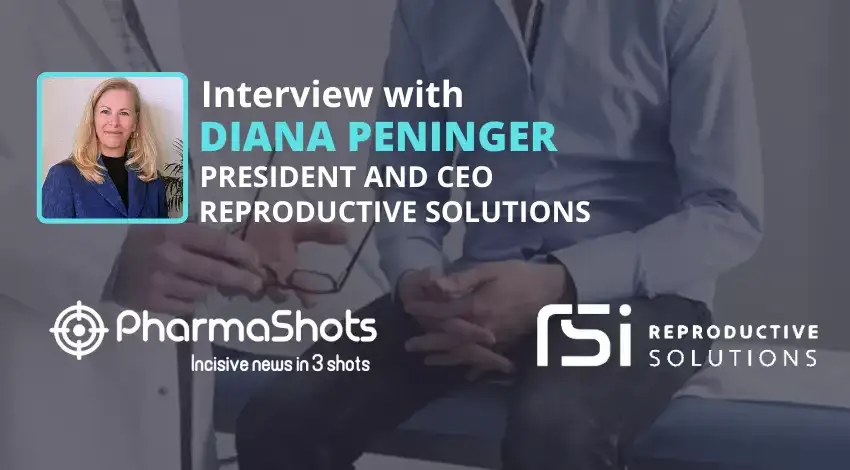Philippe Halfon, President & Founder of Genoscience Pharma Shares Insights from the P-IIb Trial of Ezurpimtrostat to Treat Hepatocarcinoma
Shots:
- Philippe talked about the launch of the ABE-LIVER P-IIb study evaluating Ezurpimtrostat to treat hepatocarcinoma in combination with atezolizumab (an anti-PDL1) and bevacizumab (an antiangiogenic agent)
- He also gave a brief on the study design and talked about the efficacy of Ezurpimtrostat with atezolizumab & bevacizumab, compared to SOC alone
- The interview gives an understanding of Genoscience is developing novel lysosomotropic treatments for a new SOC in cancer, fibrosis, and autoimmune diseases
Smriti: To begin with please highlight about Ezurpimtrostat (GNS561) for the treatment of hepatocellular carcinoma
Philippe Halfon: Ezurpimtrostat is a human autophagy inhibitor whose activity is linked to the inhibition of PPT-1 (Palmitoyl Protein Thioesterase-1). Both in vitro and in vivo studies have found evidence of its high degree of tropism in the liver and powerful anti-tumor activity. Preliminary data from a phase 1b trial on primary and secondary liver tumors has confirmed that administration of ezurpimtrostat as a monotherapy is both feasible and well tolerated. Ezurpimtrostat demonstrates intrinsic anti-tumor activity in hepatocarcinoma preclinical models, but its addition to standard treatment also allows regulation of autophagy, a key mechanism involved in immune evasion in the case of immunotherapy.
Smriti: Shed some light on the study design of the P-IIb ABE-LIVER study evaluating Ezurpimtrostat
Philippe Halfon:ABE-LIVER is a multicenter, prospective, comparative, randomized and open phase 2b trial. The principal investigator is Dr. Gaël Roth, digestive oncologist and expert in primitive hepatic tumors at the Grenoble Alpes University Hospital (CHUGA). The main objective of this trial is to evaluate the efficacy of ezurpimtrostat in conjunction with standard treatment (atezolizumab-bevacizumab) compared to standard treatment alone, as the first-line treatment in patients fighting advanced HCC. The primary criteria is PFS (Progression Free Survival). Between 187 and 196 patients will be enrolled in this trial, which will take place in two stages: a preliminary safety phase involving 3–12 patients, followed by an expansion phase.
Smriti: Please provide our readers with a comparative view between Ezurpimtrostat and standard Atezolizumab/Bevacizumab treatment.
Philippe Halfon:We will not really compare ezurpimtrostat to atezolizumab/bevacizumab, we will combine to it. By targeting PPT-1, ezurpimtrostat exerts an anti-tumor effect by reducing the nutrient intake of tumor cells and sensitizes the tumor to immunotherapy by enhancing the expression of the Major Histocompatibility Complex (MHC-I) on the surface of the tumor cells. It also makes it possible to modulate the immune response through recolonization and activation of the CD8+ cytotoxic T-cells, rendering it a highly promising treatment strategy that will enhance the activity of the immune checkpoint inhibitors like atezolizumab.
Smriti: What results does the company anticipate from the ABE-LIVER trial?
Philippe Halfon:We expect to show a good safety of the tri-therapy and a better effect on Objective Response Rate of the tritherapy compared to atezolizumab/bevacizumab alone.
Smriti: Brief about your collaboration with Grenoble University Hospital.
Philippe Halfon: We are delighted to be collaborating with Grenoble University Hospital, an institution involved in a number of major clinical trials in oncology, specifically promoting ABE-LIVER, thanks to its active network in the area of liver cancer. The CHU Grenoble is the sponsor of the trial and Genoscience Pharma is providing ezurpimtrostat and operational support.
Smriti: How will the conjugation of Ezurpimtrostat with standard treatments stand out to be a more effective cure for HCC patients?
Philippe Halfon: By targeting PPT-1, ezurpimtrostat exerts an anti-tumor effect by reducing the nutrient intake of tumor cells and sensitizes the tumor to immunotherapy by enhancing the expression of the Major Histocompatibility Complex (MHC-I) on the surface of the tumor cells. It also makes it possible to modulate the immune response through recolonization and activation of the CD8+ cytotoxic T-cells, rendering it a highly promising treatment strategy that will enhance the activity of immune checkpoint inhibitors like atezolizumab.
Smriti: Is Genoscience evaluating the potential of Ezurpimtrostat for other indications as well?
Philippe Halfon: Genoscience plans to evaluate other solid tumor cancers. In the phase 1b clinical trial, patients having Cholangiocarcinoma, metastatic Pancreatic cancer, and metastatic Colorectal cancer have been also evaluated. A phase ½ is planned to start in the US in Cholangiocarcinoma with Genfit, which has in-licensed ezurpimtrostat in this indication, in US, Canada, and Europe territories.
Image Source: Canva
About the Author:

Philippe Halfon is the President & Founder of Genoscience Pharma. He founded Genoscience Pharma initially oriented in hepatic diseases due to his international expertise in this matter. Halfon is a serial entrepreneur who has built Genoscience Pharma into a clinical-stage biotech. As an expert in oncogenetic, he has also created the medical laboratory Alphabio. He is also the Head of internal medicine at the European Hospital in Marseille and an associate professor at Medical College Paris. Philippe Halfon is committed to shifting the cancer paradigm by developing new drugs addressing a high unmet medical need.



